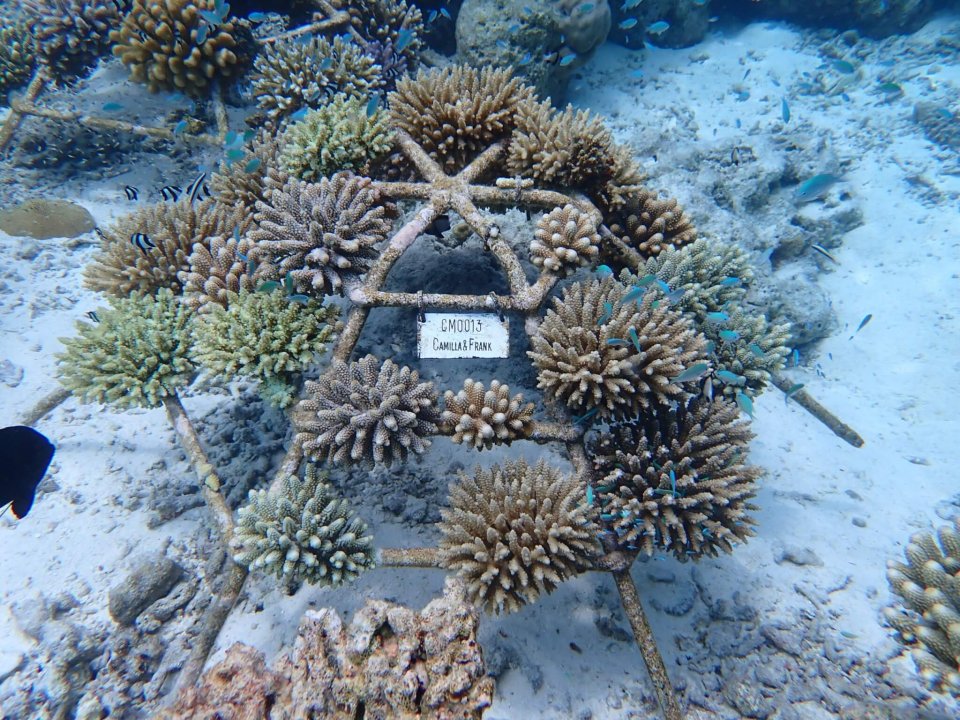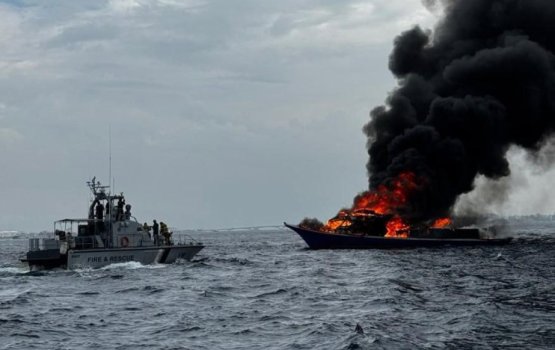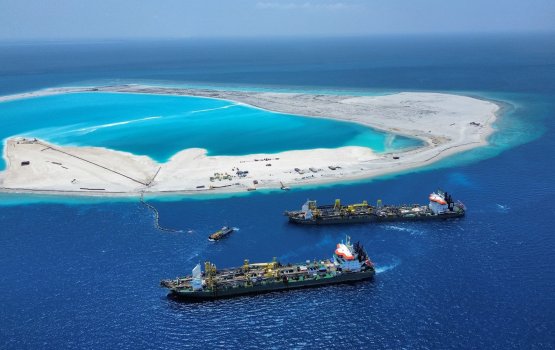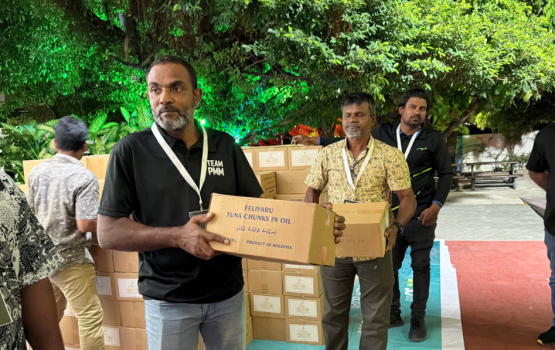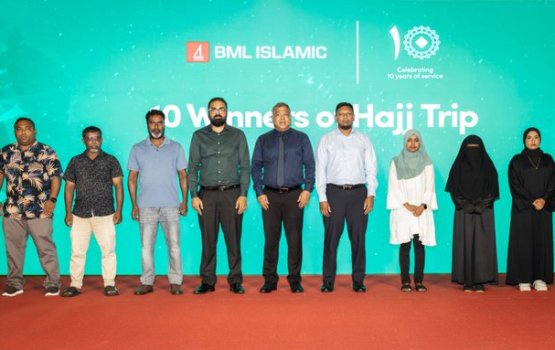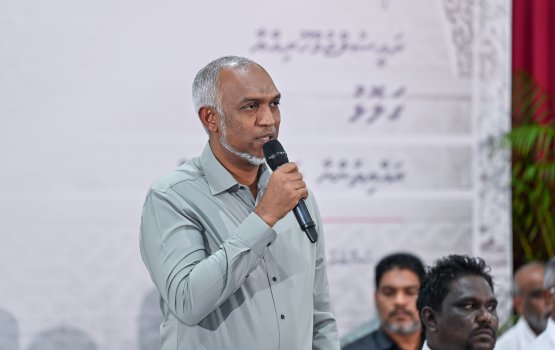In the heart of the Indian Ocean lies the Maldives, an enchanting archipelago adorned with 26 atolls and a spectacular showcase of coral reefs. This tropical paradise, celebrated for its azure waters and vibrant marine life, faces a pivotal moment in its history—one that unveils the delicate dance between progress and preservation.
As the Maldives embarks on a trajectory of economic development, the very ecosystems that define its identity and sustain its economy are at a crossroads. The coral reefs, the jewel in the crown of this tropical haven, stand as both a testament to the resilience of nature and a poignant indicator of the challenges confronting the delicate balance between human aspirations and environmental conservation.
Recent developments, epitomized by the ambitious Thilamaale Bridge project, have ignited a discourse that transcends engineering marvels and economic growth. The intricate coral ecosystems, once thought impervious to the winds of change, find themselves ensnared in a web of climate change, pollution, overfishing, and the unintended consequences of human progress. This unfolding narrative is not merely a local concern—it resonates globally as a microcosm of the broader struggle between development and environmental stewardship.
In this exploration of the challenges facing the Maldives coral reefs, we delve into the tangible impacts of climate change, the insidious influence of pollution, the ramifications of overfishing, and the controversies surrounding ambitious development projects. As the Maldives grapples with these complexities, it beckons the world to consider the far-reaching implications of balancing progress and preservation—a narrative that unfolds beneath the waves but resonates with implications for the planet at large.
Climate Change and Maldives Reefs: Unraveling the Ecological Tapestry
The Maldives, a nation synonymous with pristine coral reefs, finds itself at the epicenter of a grave environmental challenge—climate change. As global temperatures soar, the delicate ecosystems that constitute the underwater wonders of the Maldives face unprecedented threats, imperiling not just the biodiversity but the very foundation of the archipelago's marine life.
Impact of Rising Sea Temperatures
The primary culprit behind the distressing state of the Maldives reefs is the relentless rise in sea temperatures, an unmistakable consequence of climate change. The Indian Ocean, cradling the Maldives, is experiencing a warming trend that poses an existential threat to the coral ecosystems. As the ocean absorbs excess heat trapped by greenhouse gases, sea temperatures in the Maldives have surged, subjecting the coral reefs to unprecedented stress.
The coral-algae symbiotic relationship, essential for the vibrant colors and health of the reefs, is jeopardized when sea temperatures exceed certain thresholds. Elevated temperatures prompt the corals to expel the algae residing in their tissues—an event known as coral bleaching. The once vivid and diverse coral colonies lose their vibrancy, turning ghostly white in a stark visual representation of ecological distress.
Coral Bleaching and its Consequences
Coral bleaching is not merely an aesthetic concern; it is a dire warning sign of an ecological imbalance with far-reaching consequences. The expelled algae, which provide the corals with crucial nutrients through photosynthesis, leave the corals vulnerable and weakened. The stark white appearance is a manifestation of the loss of the algae, and if the stress persists, it can lead to the death of the coral colonies.
The Maldives, renowned for its kaleidoscopic underwater landscapes, has witnessed alarming rates of coral bleaching in recent years. Remote sensing data and underwater surveys conducted by marine biologists reveal extensive areas of bleached coral, signaling a widespread and systemic threat to the archipelago's reefs. Beyond the immediate aesthetic loss, the implications are profound, affecting the entire marine ecosystem that relies on the health of these corals for survival.
Vulnerability to Disease
Compounding the challenges posed by rising sea temperatures and coral bleaching is the heightened vulnerability of the weakened corals to diseases. Stress induced by elevated temperatures weakens the immune systems of corals, making them susceptible to various pathogens and infections. Once a coral succumbs to disease, it can trigger rapid degradation of entire reef systems.
In the Maldives, instances of coral diseases have surged in tandem with the rise in sea temperatures. Coral tissue loss diseases, in particular, have emerged as a significant threat, causing rapid mortality and leading to the loss of extensive coral cover. The intricate coral formations that have evolved over centuries face the risk of degradation within a remarkably short span.
Climate change manifested through rising sea temperatures, coral bleaching, and heightened vulnerability to diseases, stands as an ominous trilogy of threats to the Maldives reefs. The ecological tapestry that weaves together the marine life of the archipelago is unraveling, demanding urgent and concerted efforts not only locally but globally to mitigate the impacts of climate change and secure the future of this underwater paradise.
Pollution Threatening Maldives Reefs: Unmasking the Culprits and Consequences
In the serene waters of the Maldives, where vibrant coral reefs have long been the crown jewel of the archipelago, a sinister force is quietly undermining their splendor—pollution. As urbanization and agricultural intensification continue, sources of pollution, ranging from sewage to agricultural runoff, are converging to cast a shadow on the delicate marine ecosystems that define the Maldives.
Sources of Pollution
- Sewage: With expanding human settlements and the concurrent increase in tourism, sewage emerges as a primary source of pollution in the Maldives. Untreated or poorly treated wastewater from resorts, inhabited islands, and other coastal developments finds its way into the surrounding waters. The nutrient-rich sewage becomes a double-edged sword, providing sustenance for marine organisms while simultaneously fostering conditions detrimental to the health of the coral reefs.
- Agricultural Runoff: The surge in agricultural activities, driven by the demands of a growing population and tourism, contributes significantly to the pollution dilemma. Pesticides, fertilizers, and sediment from agricultural lands are carried into the ocean through runoff during rain events. This influx of chemicals and sediments can have profound and often deleterious effects on the coral reefs, disrupting their fragile balance and triggering a cascade of ecological repercussions.
Harmful Effects of Pollutants on Coral Reefs
- Overgrowth of Algae: Perhaps the most insidious consequence of pollution in the Maldives is the proliferation of algae. Excessive nutrients from sewage and agricultural runoff act as a fertilizing agent for algae, leading to unnaturally high growth rates. The delicate equilibrium between corals and algae is disrupted, as the corals struggle to compete with the rapidly multiplying algal colonies. This phenomenon, known as algal overgrowth or eutrophication, poses a direct threat to the health and vitality of the coral reefs
- . Smothering Coral Colonies: As algae proliferate, they form dense mats that can smother and outcompete coral colonies for space and sunlight. This competition for resources places additional stress on the already vulnerable corals, hindering their growth and regeneration. The intricate structures that have evolved over centuries, providing a habitat for diverse marine life, face degradation under the suffocating influence of overgrown algae.
- Coral Disease Susceptibility: Beyond the immediate physical impact, the overgrowth of algae can render corals more susceptible to diseases. The crowded conditions created by dense algal mats provide a breeding ground for pathogens, heightening the risk of disease outbreaks among weakened coral colonies. Once diseases take hold, they can lead to rapid coral mortality, further exacerbating the threats faced by the Maldives reefs.
Pollution emerges as a formidable antagonist to the Maldives coral reefs, driven by the influx of sewage and agricultural runoff. The consequences, ranging from the overgrowth of algae to increased susceptibility to diseases, underscore the urgent need for comprehensive measures to mitigate pollution and preserve the delicate balance of this underwater paradise.
Overfishing Threatens Maldives Reefs: Unraveling the Consequences
In the vibrant tapestry of the Maldives reefs, maintaining a delicate balance is paramount. The equilibrium of this marine ecosystem relies on the intricate interactions between various species. Overfishing, however, disrupts this delicate balance, leading to a ripple effect that threatens the health and sustainability of the coral reefs.
Key Fish Species as Guardians of Reef Health
Within the Maldives reefs, key fish species act as the guardians of reef health. Herbivorous fish, such as parrotfish and surgeonfish, play a vital role in preventing the overgrowth of algae on coral surfaces. By grazing on algae, they create space for new coral growth and contribute to the overall structural integrity of the reefs. Simultaneously, predatory fish species like groupers and snappers help regulate the population of herbivores, ensuring a harmonious coexistence among different species.
Consequences of Overfishing on Coral Reefs
The repercussions of overfishing on Maldives reefs are profound. The depletion of herbivorous fish populations disrupts the natural balance, allowing algae to proliferate unchecked. The consequence is the smothering of corals and hindrance to their growth. With herbivore populations unchecked due to overfishing, the once vibrant coral substrate faces the threat of degradation, leaving the entire reef ecosystem weakened and vulnerable.
Alarming Degradation of Ecosystem Integrity
The overfishing-induced imbalance not only impacts individual fish populations but also has a cascading effect on the overall ecosystem integrity. The loss of key fish species disrupts the natural checks and balances, resulting in unchecked algae growth, coral degradation, and a decline in overall reef health. This alarming scenario not only endangers the biodiversity of the Maldives reefs but also compromises their ability to withstand external stressors such as climate change.
In the fragile underwater world of the Maldives, overfishing emerges as a formidable threat, jeopardizing the delicate balance that sustains the vibrant coral reefs. Recognizing the pivotal roles of key fish species and understanding the consequences of overfishing is crucial for implementing sustainable conservation measures. Only through concerted efforts to mitigate overfishing and preserve the natural balance can the Maldives reefs continue to thrive and enchant future generations with their unparalleled beauty.
Conservation and Solutions: Safeguarding the Future of Maldives Reefs
Recognizing the imminent threat posed by overfishing, concerted efforts must be undertaken to protect the invaluable Maldives reefs. The significance of these efforts extends beyond the preservation of a breathtaking natural wonder; it encompasses the safeguarding of an entire ecosystem that holds ecological, economic, and cultural importance. It is imperative to act decisively to ensure the resilience and longevity of these vital coral formations.
Initiatives for Sustainable Fishing Practices
One crucial aspect of conservation involves promoting sustainable fishing practices. By implementing measures such as size limits, gear restrictions, and seasonal closures, it is possible to mitigate the impact of overfishing on key fish species. Encouraging local communities and fisheries to adopt sustainable practices not only preserves fish populations but also supports the livelihoods of those dependent on marine resources.
Responsible Tourism as a Catalyst for Change
Tourism, a significant contributor to the Maldives economy, can be a force for positive change. Emphasizing responsible tourism practices, such as limiting the ecological footprint of visitors, promoting ethical diving and snorkeling, and supporting eco-friendly accommodations, can contribute to reef conservation. Educating tourists about the fragile nature of coral ecosystems fosters a sense of responsibility, encouraging them to be stewards of these precious environments.
Establishment of Marine Protected Areas
The creation of Marine Protected Areas (MPAs) stands as a cornerstone in the battle against overfishing. Designating specific zones where fishing activities are restricted allows fish populations to recover and ensures the preservation of biodiversity. The establishment of well-managed MPAs contributes to the overall health and resilience of coral reefs, offering them a sanctuary to regenerate and thrive.
Awareness Campaigns for Sustainable Practices
Education and awareness play pivotal roles in shaping a sustainable future for Maldives reefs. Initiating public awareness campaigns, targeting both local communities and global audiences, can amplify the understanding of the threats posed by overfishing. By fostering a collective sense of responsibility, these campaigns empower individuals to make informed choices and actively participate in the preservation of the marine environment.
While overfishing poses a significant threat to the Maldives reefs, a multifaceted approach to conservation offers hope for their continued existence. Through the promotion of sustainable fishing practices, responsible tourism, the establishment of Marine Protected Areas, and widespread awareness campaigns, it is possible to not only mitigate the current challenges but also secure the future of these mesmerizing coral ecosystems. In the face of adversity, proactive conservation measures stand as beacons of hope, guiding the way towards a harmonious coexistence between humanity and the precious underwater realms of the Maldives.
The Afcons Incident and Unintended Damages
Specific instances, like the Afcons incident related to the Thilafushi Bridge development, underscore the vulnerabilities of Maldives reefs. Unintended damages caused by research activities higlight the importance of rigorous environmental safeguards during government-led projects to prevent irreversible harm to coral ecosystems.
The cumulative impact of various government projects poses a severe threat to the Maldives reefs, jeopardizing the ecological balance and resilience of these delicate marine ecosystems. Sustainable practices, strict environmental regulations, and heightened awareness are crucial to finding a harmonious balance between developmental aspirations and the preservation of the Maldives' invaluable coral reefs.
As the Maldives grapples with the intricate dance between progress and preservation, the fate of its coral reefs hangs in the balance. The paradisiacal underwater wonders, once thought invincible, are now at the mercy of a complex interplay of climate change, pollution, overfishing, and the unintended consequences of ambitious development projects like the Thilamaale Bridge.
The evidence is irrefutable—rising sea temperatures, extensive coral bleaching, and the insidious infiltration of pollution have cast a shadow on the vibrancy of the Maldives' coral ecosystems. The intricate balance that sustains this underwater paradise is unraveling, and the recent controversies surrounding the Thilamaale Bridge underscore the urgent need for a paradigm shift in development practices.
While economic progress is crucial for the Maldives, the toll on its coral reefs demands a recalibration of priorities. The pursuit of development must be accompanied by a profound commitment to environmental conservation. The delicate ecosystems that define the Maldives are not only vital for the country's economy but are also integral to its cultural identity.
In response to these challenges, the Maldivian government's initiatives, such as reef restoration projects and the establishment of marine protected areas, signal a recognition of the urgency to safeguard these natural wonders. However, the road ahead is fraught with complexities, requiring not only governmental action but also a collective effort from international organizations, local communities, and the global community.
The conservation of the Maldives coral reefs is not merely an environmental endeavor; it is a moral imperative. Sustainable development practices, stringent environmental regulations, and innovative conservation strategies must be woven into the fabric of the Maldives' growth trajectory. The Thilamaale Bridge controversy serves as a turning point, an opportunity to embrace responsible development that harmonizes with the preservation of the Maldives' irreplaceable natural treasures.
The journey towards a sustainable future for the Maldives' coral reefs demands vigilance, commitment, and a harmonious balance between the aspirations of progress and the imperative of preservation. As the archipelago navigates this intricate terrain, the global community watches with bated breath, hopeful that the Maldives can chart a course that ensures the enduring beauty of its coral reefs for generations to come.

